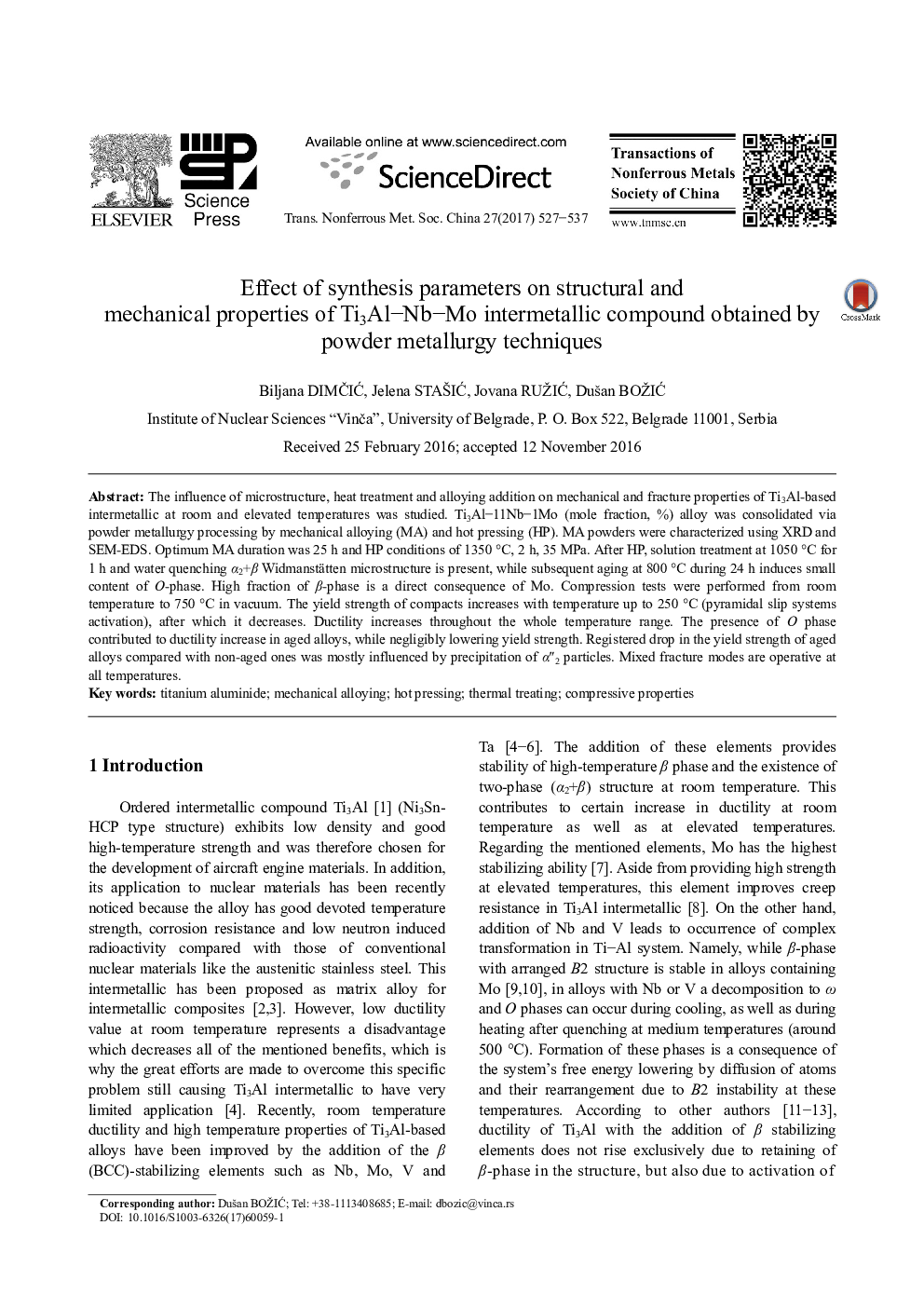| Article ID | Journal | Published Year | Pages | File Type |
|---|---|---|---|---|
| 8012002 | Transactions of Nonferrous Metals Society of China | 2017 | 11 Pages |
Abstract
The influence of microstructure, heat treatment and alloying addition on mechanical and fracture properties of Ti3Al-based intermetallic at room and elevated temperatures was studied. Ti3Al-11Nb-1Mo (mole fraction, %) alloy was consolidated via powder metallurgy processing by mechanical alloying (MA) and hot pressing (HP). MA powders were characterized using XRD and SEM-EDS. Optimum MA duration was 25 h and HP conditions of 1350 °C, 2 h, 35 MPa. After HP, solution treatment at 1050 °C for 1 h and water quenching α2+β Widmanstätten microstructure is present, while subsequent aging at 800 °C during 24 h induces small content of O-phase. High fraction of β-phase is a direct consequence of Mo. Compression tests were performed from room temperature to 750 °C in vacuum. The yield strength of compacts increases with temperature up to 250 °C (pyramidal slip systems activation), after which it decreases. Ductility increases throughout the whole temperature range. The presence of O phase contributed to ductility increase in aged alloys, while negligibly lowering yield strength. Registered drop in the yield strength of aged alloys compared with non-aged ones was mostly influenced by precipitation of αâ³2 particles. Mixed fracture modes are operative at all temperatures.
Related Topics
Physical Sciences and Engineering
Materials Science
Metals and Alloys
Authors
Biljana DIMÄIÄ, Jelena STAÅ IÄ, Jovana RUŽIÄ, DuÅ¡an BOŽIÄ,
